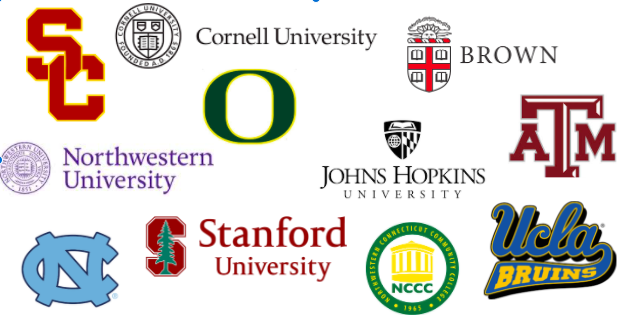What will colleges look like this fall?
As many have taken the COVID-19 vaccine, hopes are looking up for collegiate life returning to normal soon.
The coronavirus pandemic has forced high schools around the world to experiment with remote learning, causing change to student life. As seniors at these high schools move on to college, many wonder what their universities plan to do for the upcoming academic year.
While some colleges will continue to provide remote learning, others that decide to reopen in person are faced with the challenge of keeping students and staff safe. The CDC says the timeline for colleges to “return to normal” is significantly shorter than that for other establishments, indicating that life may return to normal for some students.
“The reopening of college and university campuses in the fall should be a national priority,” Brown University President, Christina Paxson, wrote in The New York Times. “Colleges and universities must be able to safely handle the possibility of infection on campus while maintaining the continuity of their core academic functions.”
Moreover, a potential solution promises to help colleges maintain the health of their students: the COVID-19 vaccine. Hundreds of colleges say students attending in-person learning must get the COVID-19 vaccines. Colleges such as Penn State, Rutgers University, Northwestern University, and many others have updated their vaccine requirements to include the Covid-19 vaccine.
Although decisions like this sparked some outrage, many students found it fair. In a survey by College Pulse, 71% of students believe colleges have the right to ask students to get vaccinated.
Graduating senior Jack Ziets said he will be attending his freshman year at American University in person, since students are required to get the COVID-19 vaccine.
“I’m excited about this decision, as I’m really looking forward to the traditional ‘college experience,’” Ziets said, “and the fact that almost every student on campus will be vaccinated definitely makes me feel safer.”
In addition to vaccines, colleges are implementing other measures.
Many colleges reopening in the fall will prompt students to wear a mask indoors, limit social gatherings and get frequently tested for covid. Along with these measures, colleges are likely to continue limiting their on-campus activities in order to ensure the safety of students. Some may plan for students to live on campus but only attend a few classes in person or on specific days, in order to ensure social distance, while others may return to fully in person daily classes with masks required.
Not all higher education institutions implement the same measures. For example, American University requires masks indoors and at large outdoor gatherings, while Florida State University recommends, but no longer requires, masks to be worn indoors.
“This represents a shift from the previous face-covering requirement and reflects our substantial efforts to vaccinate the university community, along with a low number of COVID-19 cases on campus,” Florida State University said in a public statement.
Additionally, just as all colleges have individual responses to COVID-19, students have different responses to their measures. This has the potential to degrade progress in eliminating COVID-19. In order to address the potential lack of student cooperation, various colleges are enforcing rules and regulations.
Some colleges offer incentives, while others push for mandates and strict punishment. Such examples include suspension from campus for a set period of time, assigned community service, or expulsion. Students’ noncompliance with the rules can impact their academic progression and financial situations.
Those who disobey the regulations are classified as a health risk, causing them to think twice before attending large-scale parties or gathering in dorm rooms.
At the end of the day, the responsibility of complying with policies and regulations is shared by the whole higher education community. These requirements are likely to stay. As their focus remains to protect the health of the student body, college life will look different from pre-pandemic years.
Seniors graduating this year may look forward to a “normal” college experience. However, in light of the continuing COVID-19 pandemic, it is likely students will return to college campuses in the fall with some restrictions in place, at least until a majority of the population is vaccinated.
Freshman Alexis Volkodav is a first-year staff reporter for the Spotlight. She also participates on the high school cross country team. Her enthusiasm...


